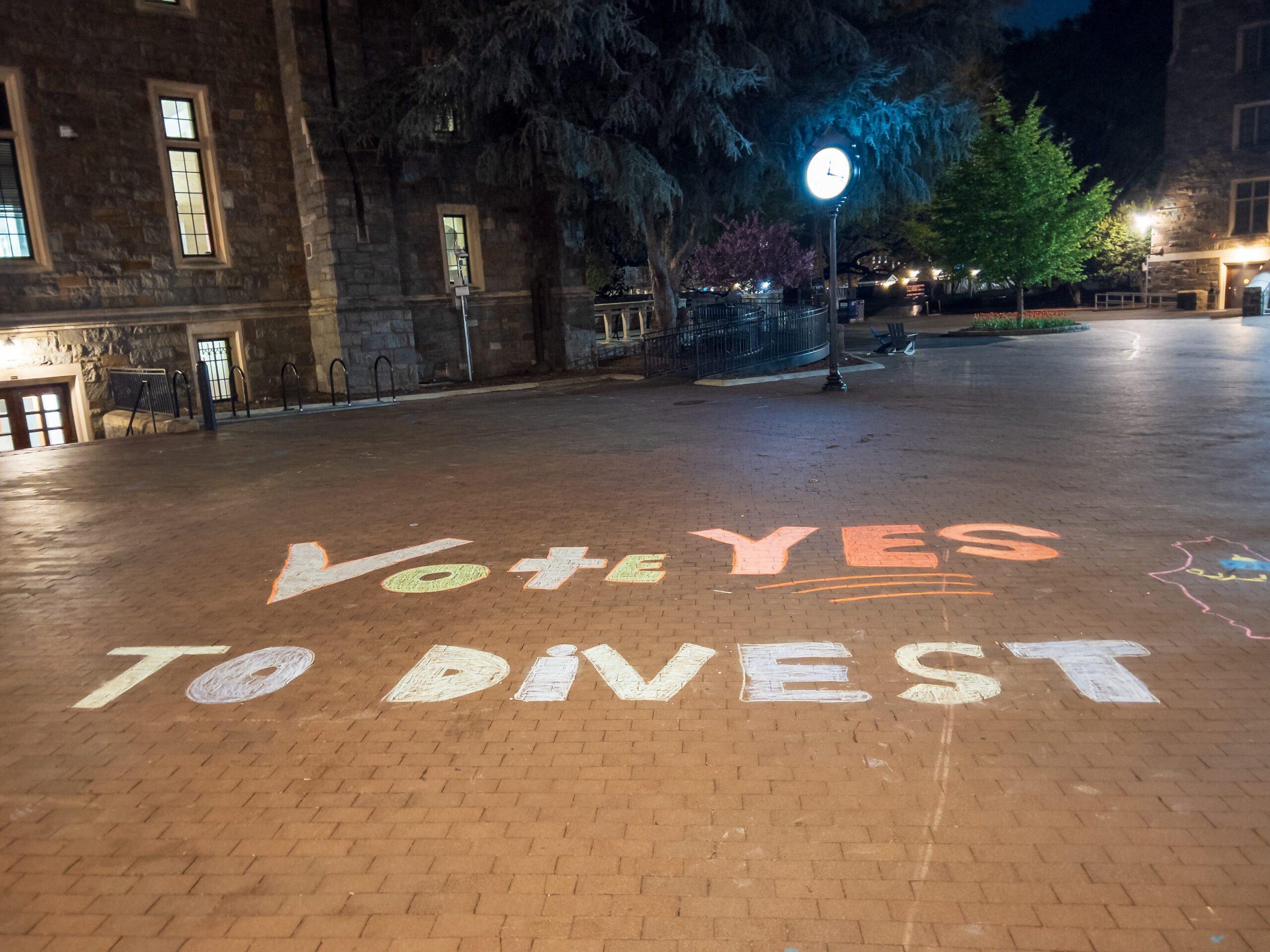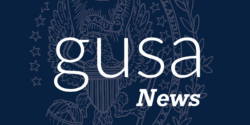Georgetown Student Government (GUSA) announced, via Instagram, late Sunday night that the vote on the referendum on university divestment from companies arming the Israeli military will be delayed, changing the voting window from April 14–16 to April 26–28. This decision follows discussions between the GUSA executive team and members of the Jewish Student Association (JSA). Voting for GUSA class senators remains April 14–16, and opens later today at 8 p.m.
“We made this decision after hearing concerns about the placement of the election during a religious holiday,” the GUSA Elections Commission wrote. The timing of the referendum had been of concern to a number of Jewish students because of its overlap with Passover, a Jewish high holiday.
Passover lasts from April 12 to April 20 this year. Passover is a Jewish holiday where traditionally observant Jews abstain from doing any work, including using technology during the first two days. This would have made it difficult for some Jewish students to vote in the referendum.
“We are happy there is no longer a conflict with Passover and that [the referendum] can be more inclusive for observant Jews on campus,” Maddie Stoller (CAS ’27), one of the co-presidents of JSA, wrote to the Voice.
According to a number of sources, GUSA has also received hundreds of emails from community and non-community members condemning the decision to put the referendum on the ballot.
One such email obtained by the Voice, which copied the Office of Civil Rights at the United States Department of Justice, called on Interim President Groves and the Board of Regents to “Reject GUSA’s Discriminatory, Antisemitic Activism and Say NO to BDS!”
“The Georgetown University Student Association (GUSA) seems determined to prove critics right about rampant antisemitism and illegal discrimination on campus, and you seem determined to let them,” the email from an employee of Gesher Human Services, a Jewish nonprofit based in Detroit, reads.
Miriam Siegel (CAS ’26), a member of Georgetown’s chapter of Jewish Voice for Peace who was arrested at the GW Gaza solidarity encampment last May, pointed out that only the divestment referendum—and not GUSA senate elections—is being postponed.
“If this postponement were genuinely occurring due to religious accommodations, the entire election period could have been extended for a day or two. Rather, solely the divestment referendum is being pushed back—if this were truly a matter of religious accommodations then it would not be just the single pro-Palestine vote being postponed,” Siegel wrote to the Voice. “This is discriminatory, and represents the push of Zionist interests rather than a commitment to religious accommodation.”
In the Instagram post announcing the postponement, GUSA added that people may continue to register as formal campaigners and campaign for the referendum through April 28.
Sam Lovell (CAS ’25), a senator for the class of 2025, wrote to the Voice that the referendum’s postponement is consistent with GUSA’s constitution and bylaws.
“Constitutionality, however, does not imply sound judgment,” Lovell wrote. “The announced postponement caps off a series of unsavory missteps that were largely foreseeable and preventable, from a rushed introduction to haphazard planning.”
Some GUSA Senators expressed concern with the way the referendum was introduced, citing a rushed voting process in which senators were given a limited amount of time to familiarize themselves with the referendum language before voting, as well as a lack of traditional committee meetings concerning the referendum.
“Make no mistake: it is commendable to reschedule this referendum to accommodate those who are observing Passover, but the need for rescheduling should never have arisen in the first place,” Lovell added. “It is scarcely unknown that GUSA suffers from an enduring PR problem—and such episodes as today only amplify these concerns.”
In a statement to the Voice, GUSA Executive President Ethan Henshaw (CAS ’26) wrote that in a conversation with JSA leadership, GUSA decided to extend the voting period of the referendum and allow students with a religious conflict to vote late. After later conversations, however, GUSA postponed the referendum rather than extending voting.
“Late last night [on Sunday, April 13], around 9 pm, it was communicated that students were no longer comfortable with this solution. After discussing it with the administration, who had originally signed off on the election dates, they told us to separate the senate election and referendum. In that conversation, it became clear that we could not go forward with the original plan for the referendum. Unfortunately, this required making a late and imperfect decision,” Henshaw wrote. “We apologize for the confusion it has caused.”
Editor’s note: This article has been updated with additional comment from Henshaw that the Voice received after publication.





